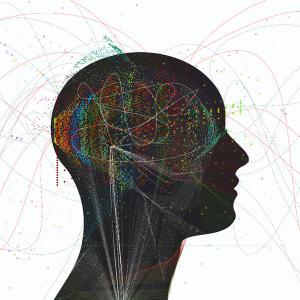
Cool offering from David Chalmers, at his fragments of consciousness blog. His work with Andy Clark on the extended mind, or extended consciousness is essential reading for anyone who hopes to understand that consciousness is not confined to the brain. In all fairness, it's more Clark's theory than Chalmer's, but the paper is good.
This new selection is from Chalmer's John Locke Lectures (at Oxford University) on Constructing the World, which seems to be a book in progress, with lectures posted online as they are given.
Part of the book is online, apparently added to since the post was put up - there are four chapters now.Constructing the World
For the last couple of weeks I have been in Oxford giving the John Locke Lectures on Constructing the World. The title is an homage to Rudolf Carnap's 1928 book Der Logische Aufbau Der Welt. The lectures are based on a book I have been writing for the last couple of years, trying to execute a project that is reminiscent of Carnap's in certain respects. I haven't put this material online until now in order not to pre-empt the lectures, but I will be putting chapters online as I give the corresponding lecture each Wednesday. So far you can find the introduction and the first three chapters. Also, the Oxford website has audio for lecture 1 and lecture 2, as well as slides and handouts. More of this material will go online each week, and I'm told that there will eventually be video too. It has been very good to be back in Oxford, and I'm grateful to everyone here for their hospitality to date.
Constructing The World
David ChalmersThis is the current table of contents for my draft manuscript Constructing the World. I'll be putting the chapters online weekly after I've given them as John Locke lectures in Oxford (over six weeks starting May 5). The lectures correspond roughly to chapters 1, 3, 4, 5, 6, and 8 (with a few bits and pieces of the introduction, chapter 2, and chapter 7 worked in). N.B. These chapters are very drafty (e.g. no bibliographies yet) and also haven't been updated to mirror various recent (mostly minor) changes in the lecture versions.
- Postscript: The Scrutability of Reference
- Postscript: Knowability, Determinacy, and Scrutability
- Postscript: Totality Truths and Indexical Truths
4. The Case for A Priori Scrutability
- Postscript: The Fregean and the Russellian
5. Revisability and Conceptual Change
6. Hard Cases
- Postscript: Scrutability and the Unity of Science
7. Minimizing the Base
- Postscript: From the Aufbau to the Canberra Plan
8. Whither the Aufbau?
- Postscript: Structuralism and Skepticism
9. Verbal Disputes and Philosophical Progress
- Postscript: The Joys and Sorrows of Conceptual Analysis
10. The Roots of Scrutability.
- Postscript: Reference Magnets
No comments:
Post a Comment